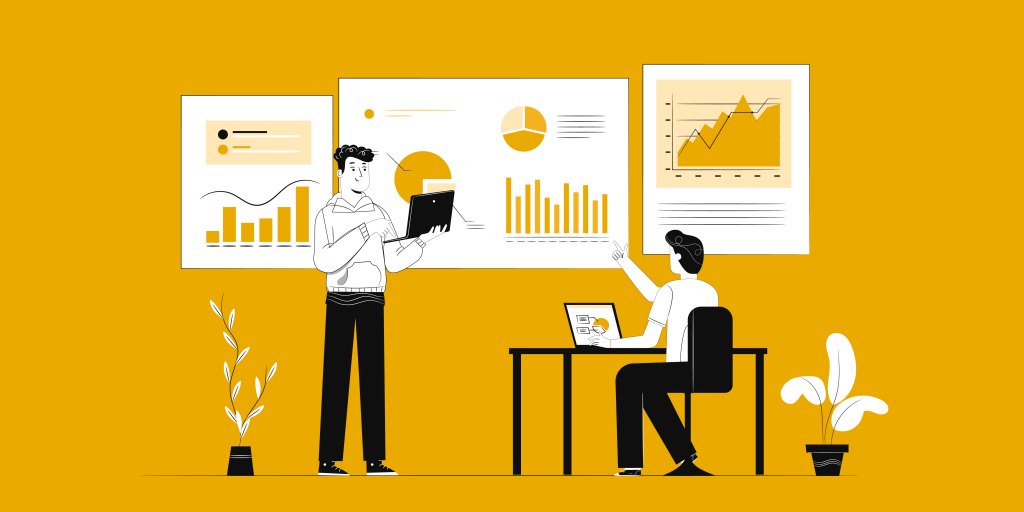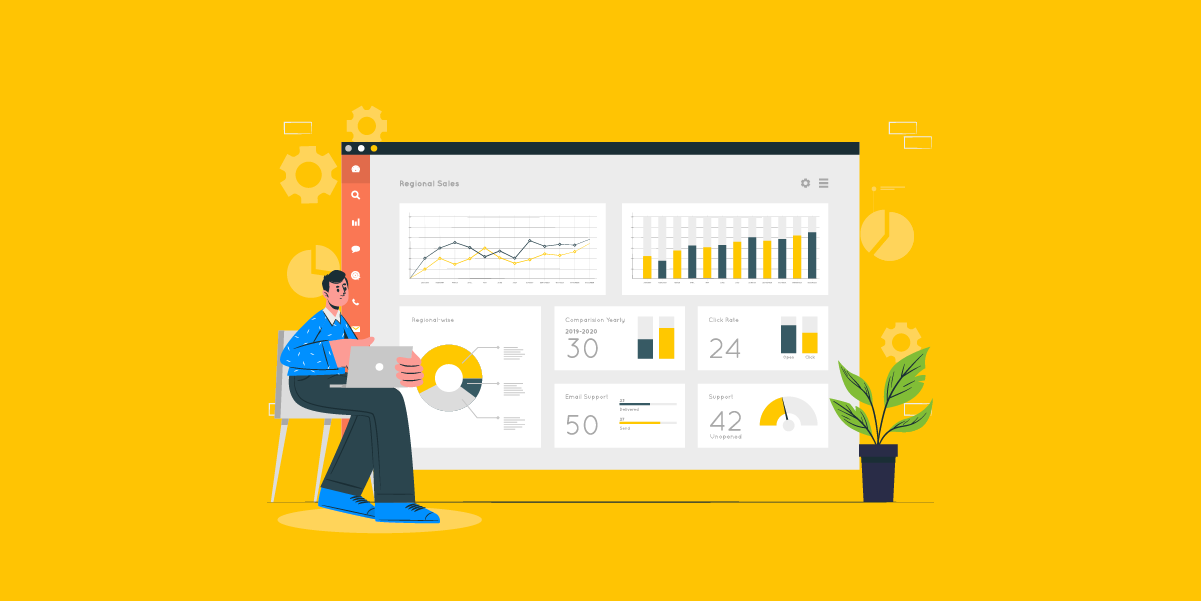Social media has evolved into a dynamic platform where billions of users generate a colossal amount of data every second. The realm of social media predictive analytics has emerged as a game-changer, offering businesses unprecedented insights into user behavior and trends. In this article, we will delve into the intricacies of social media predictive analytics, exploring its working mechanisms, key components, benefits, challenges, and future trends.
Definition of Social Media Predictive Analytics

Social media predictive analytics involves the use of advanced technologies and algorithms to analyze patterns, trends, and user behavior on social media platforms. It goes beyond hindsight analysis, enabling businesses to make informed decisions based on predictive modeling.
Significance in Today’s Digital Landscape
In an era where data reigns supreme, the ability to forecast trends and user actions provides businesses with a competitive edge. Social media predictive analytics empowers organizations to anticipate customer needs, refine marketing strategies, and stay ahead of the curve.
How Social Media Predictive Analytics Works
1. Data Collection and Integration
The foundation of predictive analytics lies in robust data collection. Social media platforms gather data on user interactions, preferences, and engagement metrics. Integration of this diverse data sets the stage for meaningful analysis.
2. Machine Learning Algorithms
Sophisticated machine learning algorithms process the integrated data, identifying patterns and correlations. These algorithms continuously learn and adapt, ensuring the accuracy of predictions over time.
3. Predictive Modeling
The culmination of data analysis and machine learning results in predictive models. These models forecast future trends, user behavior, and potential outcomes, providing actionable insights for businesses.
Key Components of Social Analytics
1. User Engagement Metrics
Understanding how users engage with content is crucial. Predictive analytics dissects metrics such as likes, shares, and comments, offering a comprehensive view of content performance.
2. Sentiment Analysis
Predictive analytics tools go beyond quantitative metrics, incorporating sentiment analysis to gauge the emotional response of users. This insight is invaluable for refining marketing messages and brand perception.
3. Trend Analysis
Identifying emerging trends allows businesses to capitalize on opportunities before they peak. Predictive analytics excels in trend analysis, offering a proactive approach to market dynamics.
Benefits of Utilizing Social Predictive Analytics
1. Improved Marketing Strategies
Predictive analytics enables targeted marketing by identifying segments with higher conversion probabilities. This precision enhances the efficiency of marketing campaigns and maximizes return on investment.
2. Enhanced Customer Engagement
Understanding user preferences and behavior allows businesses to tailor content and engagement strategies. This personalized approach fosters stronger connections with the audience.
3. Competitive Advantage
Businesses leveraging predictive analytics gain a competitive edge by staying ahead of industry trends and consumer preferences. This foresight enables proactive decision-making and adaptability.
Challenges
1. Data Privacy Concerns
The collection and use of user data raise ethical and privacy concerns. Striking a balance between data-driven insights and user privacy is a challenge that businesses must navigate.
2. Accuracy of Predictions
Predictive models are only as good as the data they analyze. Ensuring data accuracy and relevance is pivotal to the success of social media predictive analytics.
3. Interpretation of Results
Understanding and effectively interpreting predictive analytics results require a combination of technical expertise and industry knowledge. Bridging this gap is essential for actionable insights.
Future Trends
1. Integration of AI and Predictive Analytics
The fusion of artificial intelligence and predictive analytics is poised to revolutionize the field. AI-driven algorithms enhance the accuracy and depth of predictive models.
2. Emerging Technologies in the Field
Advancements in data processing, cloud computing, and machine learning algorithms are shaping the future of social media predictive analytics. Businesses must stay abreast of these developments to remain competitive.
Best Practices for Implementing Social Media Predictive Analytics
1. Regular Monitoring and Evaluation
Predictive analytics is not a one-time solution. Regularly monitoring and evaluating the performance of models ensure their relevance and effectiveness.
2. Collaboration Across Departments
The success of predictive analytics extends beyond the marketing department. Collaboration with sales, customer service, and product development teams enhances the holistic impact of analytics.
3. Flexibility in Strategy
Adaptability is key in the dynamic landscape of social media. Businesses should be ready to adjust their strategies based on evolving trends and user behavior.
Industries Benefiting from Social Media Predictive Analytics
1. E-commerce
Online retailers leverage predictive analytics to recommend products, personalize shopping experiences, and optimize inventory management.
2. Healthcare
Predictive analytics aids healthcare providers in anticipating patient needs, optimizing resource allocation, and improving treatment outcomes.
3. Financial Services
Banks and financial institutions use predictive analytics to assess credit risk, detect fraud, and tailor financial products to individual customer needs.
Overcoming Common Misconceptions
1. Understanding the Limitations
Predictive analytics is a powerful tool, but it is not infallible. Businesses should be aware of its limitations and use it as part of a comprehensive decision-making toolkit.
2. Clarifying Myths Surrounding Predictive Analytics
Dispelling common myths, such as the notion that predictive analytics is only for large enterprises, is crucial for fostering widespread adoption and understanding.
How Small Businesses Can Leverage Social Media Predictive Analytics
1. Cost-effective Tools and Solutions
Small businesses with limited resources can benefit from affordable predictive analytics tools tailored to their specific needs.
2. Tailoring Strategies to Limited Resources
Adapting strategies to the scale and scope of small businesses ensures realistic and achievable outcomes.
Social Media Predictive Analytics Tools Comparison
1. Overview of Top Tools
Comparing leading predictive analytics tools, including features, ease of use, and scalability.
2. Features and Capabilities
Understanding the unique features and capabilities of each tool assists businesses in making informed decisions.
Impact of Social Media Predictive Analytics on SEO
1. Improving Search Engine Rankings
The insights gleaned from social media predictive analytics can inform SEO strategies, enhancing website visibility and search engine rankings.
2. Content Optimization Strategies
Tailoring content based on predictive analytics results optimizes user engagement and supports SEO efforts.
Conclusion
Social predictive analytics empowers businesses with actionable insights, transforming the way they engage with users and shaping strategies.
As technology evolves, embracing social predictive analytics becomes imperative for staying competitive and relevant in the digital age.
Ready to unlock the power of Social Media Predictive Analytics? Request a demo from AIM Technologies today and revolutionize the way you understand and engage with your audience.
FAQs
What is the primary purpose of social predictive analytics?
- Social media predictive analytics aims to forecast user behavior, trends, and outcomes, enabling businesses to make informed decisions and enhance their strategies.
How can small businesses leverage predictive analytics on a budget?
- Small businesses can explore cost-effective predictive analytics tools tailored to their needs and adapt strategies to their scale.
What challenges do businesses face in implementing predictive analytics?
- Challenges include data privacy concerns, ensuring the accuracy of predictions, and effectively interpreting complex analytics results.
Is social media predictive analytics only beneficial for large enterprises?
- No, businesses of all sizes can benefit from predictive analytics by adapting strategies to their resources and goals.
How does social predictive analytics impact SEO?
- Social predictive analytics informs SEO strategies by providing insights for content optimization and improving search engine rankings.




